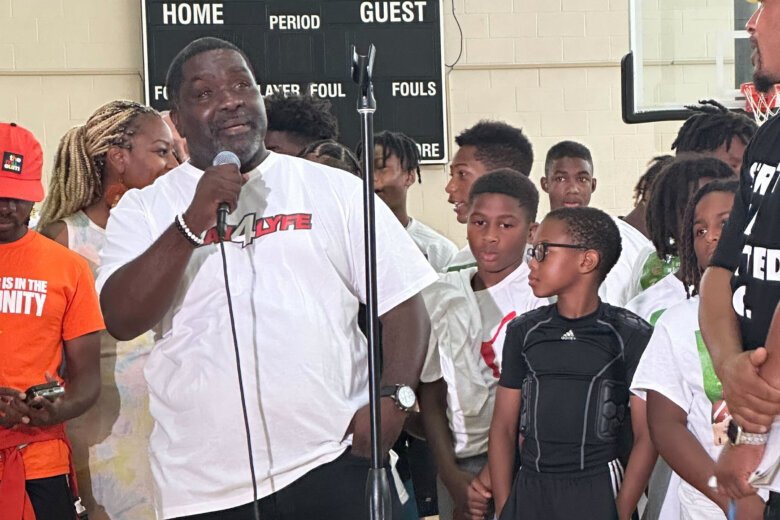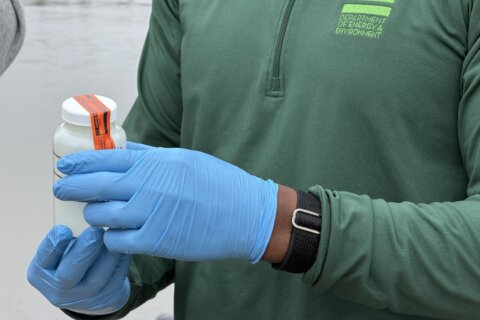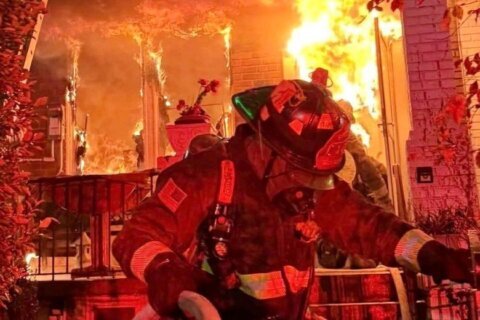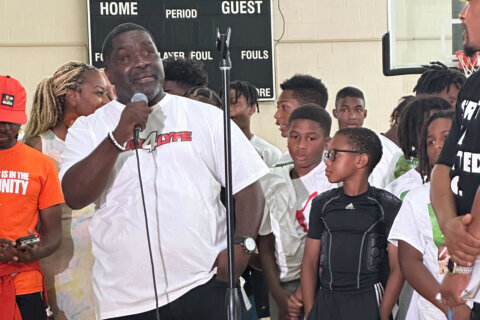
As juvenile crime in the District continues to rise, the Ward 8 community in Southeast held a summit to engage young people in finding solutions on Sunday afternoon.
Held at the Town Hall Education Arts Recreation Campus (THEARC) on Mississippi Avenue, community leaders at the event spoke directly to young people about the importance of positive decision-making, being leaders, setting examples for their peers and encouraged kids to channel their energies into other arenas outside of crime — such as academics, sports and the arts.
Speakers included D.C.’s Deputy Mayor for Public Safety Lindsey Appiah, Ward 8 Councilmember Trayon White, D.C. Attorney General Brian Schwalb, and a handful of youth leaders, sports coaches and other community members.
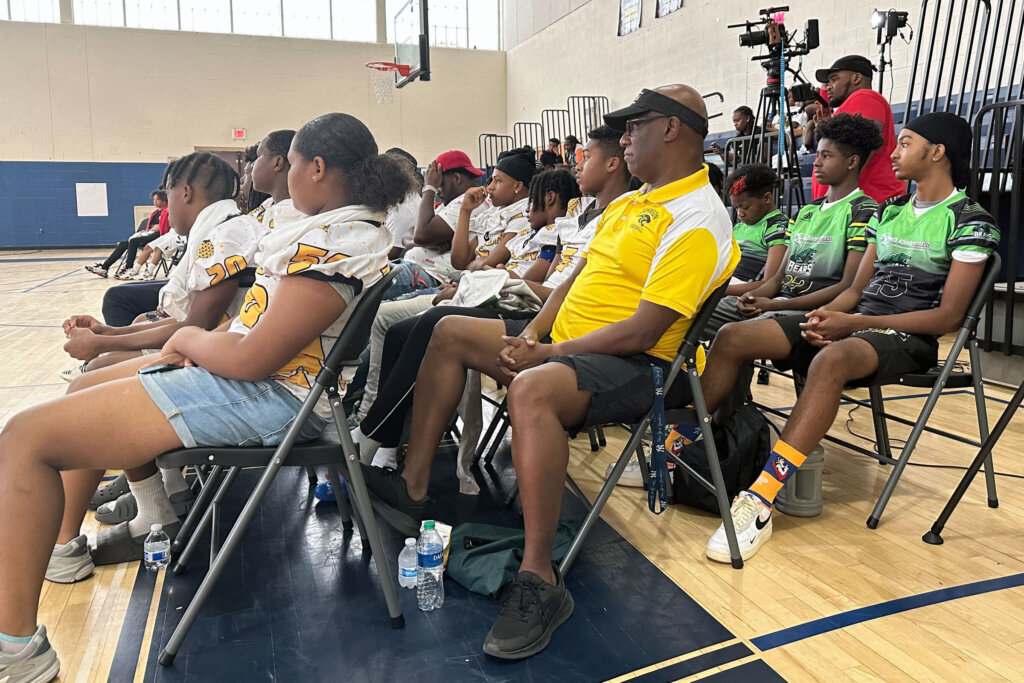
The idea for the event was conceived after a particularly violent and crime-ridden 4th of July weekend in the District, particularly in the Southeast region of the city. Leaders say they convened the very next day to come up with solutions to rising crime and violence, and the S.M.A.R.T. (sports, music, arts, recreation and technology) Youth Violence Summit was born.
The community gathered to brainstorm solutions for the rise in juvenile crime, and allow young people attending to speak about what they’re observing on the streets, as well as their take on what can be done for their community.
“The way that we can reduce crime and make our city a place that can thrive, is for everyone to do it together,” said Deputy Mayor Appiah.
“What I wanted them [the kids] to hear is how we actually see them. That we love them. That we care for them. That we see them as leaders,” she added. “With all that we hear going on with young people, sometimes the positivity and the message of what we’re trying to say is lost.”
“I think it speaks a lot to how much people want that,” Appiah said of community safety, when asked if she thought the fact that the community organized its own summit spoke to an increased desire for accountability.
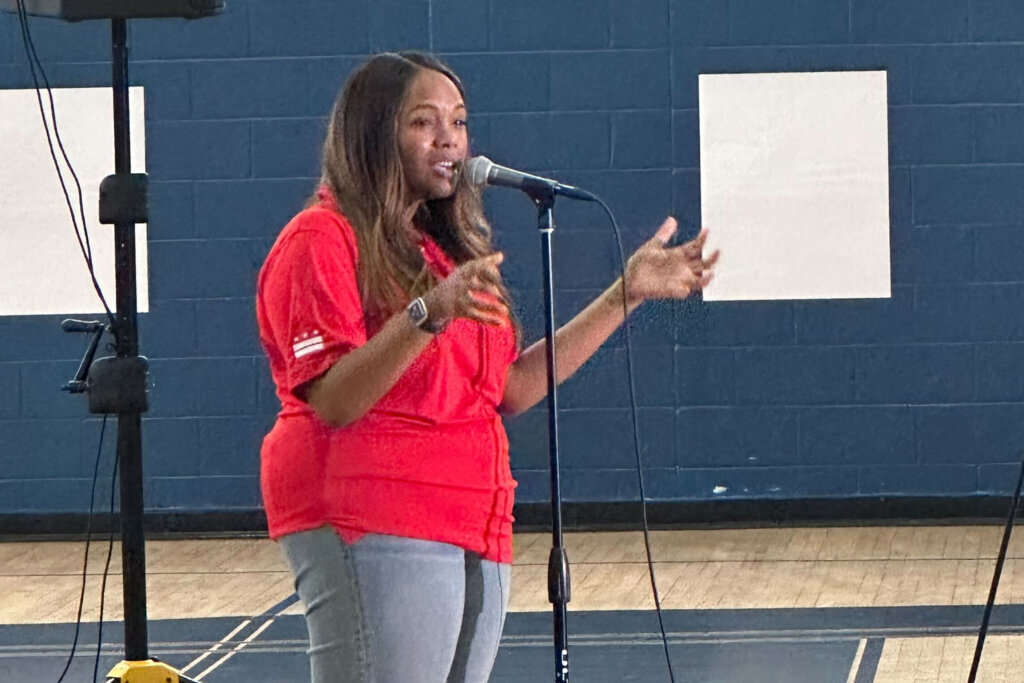
One of those coaches, Charles Holton, also spoke at the event.
“All this stuff that goes on … we have to help these kids to take our community back,” Holton told WTOP. He and Appiah both say solutions lie within the city’s youth.
Holton has been a coach for the Watkins Hornets Youth Association, a nonprofit that introduces youth and parents to a positive sports program while enriching family and community bonds. He also runs Play4Life, a youth football outfit that aims to keep kids on the field — and out of trouble.
He says that mission took on even more significance when one of their teenage players was gunned down in Southeast D.C. a couple years back.
“I think we need to listen to the kids, see what they’re saying, take that and receive it, then implement things to make it better,” he said.
“Many of these kids are already doing the right thing,” Appiah added.
D.C. Attorney General Brian Schwalb, who also spoke at the event’s opening, echoed this sentiment.
“We have 50,000 young people between the ages of 10 and 17 in our city,” he told the crowd. “Only 500 of them are currently caught up in our justice system. That’s less than one percent. So we need to change the narrative when it comes to our youth.”
Appiah says that holding people criminally accountable is important, but that it’s only one side of the coin.
“Accountability also looks like love,” Appiah told WTOP, speaking of the importance of events like the summit.
“I want them to hear our heart, and our hearts want to uplift them,” she said.

